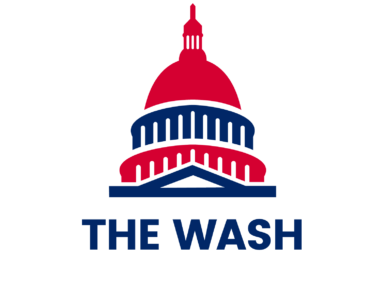Amidst the arrival of another election day, new numbers find surging interest in this year’s midterm elections despite a substantial amount of Americans that choose not to vote for a variety of reasons.
Early voter turnout in 27 states has exceeded the 2014 midterm early vote count, according to University of Florida’s Election Project, an electoral project spearheaded by associate professor Michael McDonald. This year’s turnout is higher than normal, McDonald said.
However, 43 percent of the American electorate did not go to the polls in 2016, according to McDonald’s research. The data show that out of 232 million eligible voters, only 132 million voted, 60.5 million voted for Hillary Clinton and 60 million voted for Donald Trump. Roughly, 100 million eligible voters chose not to cast a ballot.

“I talked to people back home who didn’t vote because there’s sort of this sense of hopelessness around politics,” George Washington University student Chase Kleber said.
Kleber said many people he knows see continuous loss, after placing faith in a candidate because they promised change would happen. According to Kleber, when people feel that there is no progress being made, they simply lose hope.
“That lack of change drives them to see no point in voting,” Kleber said.
Natalie Dow, a fellow GW student, voted absentee in her home state of Colorado. She offers a different point of view.
“The future depends so much on what we want and what we say that we want the world to turn into, so if you’re not putting your word out there and voting for people who you think represent you, then how can you expect the future to be one that you want to be a part of,” Dow said.

This issue is not as cut and dry as it seems. There are several barriers that can prevent people from voting, according to a Pew Research study.
In 2016, 25 percent of respondents said they did not vote because of a strong distaste for the candidates and the issues being covered. The Pew Research data also found 15 percent did not vote because they felt their vote had no impact on the outcome of the election, 14 percent said they were too busy or had conflicting schedules, 12 percent claimed illness or disability, 11 percent said other, 8 percent said they were out of town or away, 4 percent said they had registration problems, 3 percent forgot to vote, another 3 percent had transportation issues, and 2 percent said the hours or polling locations where an inconvenience.
James Harnett, Foggy Bottom Advisory Neighborhood Commissioner, is currently supporting the Youth Vote Amendment Act of 2017. The bill lowers the legal voting age to 16 in the District of Columbia. There are a slew of difficulties that get in the way of people casting a ballot, Harnett said.
“We don’t do enough to encourage voting, we don’t do enough to break down the barriers of voting,” Harnett said.
The logistics of voting, buying stamps for absentee ballots and being aware of deadlines are some of the setbacks Harnett has come across in registering people to vote.

Harnett said a friend of his registered to vote in her home state of Tennessee and had to fly back home from D.C., because the state refused to mail her an absentee ballot.
According to Harnett, a lack of absentee ballots seems to be causing a lot of problems for college students who are away from home. He said around 150-200 George Washington University students on average have to re-register to vote in D.C because their home states would not send them absentee ballots.
Former president of the University of California, San Diego’s non-partisan Student Organized Voter Access Committee (SOVAC), Liam Barrett, said a lack of education has a tremendous effect on people turning themselves away from the polls.
“I think a lot of people feel that they are not knowledgeable enough to cast a vote,” Barrett said.
This same answer was given by Harnett and Dow as the most common response they received from non-voters in D.C.
Barrett said a complete breakdown in civics education in this country has failed many Americans trying to vote because many of them were never taught about it.
“A lot of people don’t know how to register to vote,” Barrett said.
He said his experience as former president showed him most people don’t know they need to re-register to vote when they relocate to a new area.
“Registration is hard, it’s very difficult to get registered correctly,” Barrett said.
Barrett, like Harnett, says the system is not an easy process to sign people up for, which also causes many to feel disenfranchised.
The majority of people who do not vote are not in the over-hyped, stereotypical crowd that believe their vote makes no difference. But Barrett offers up a simple counterpoint to those who feel their vote does not matter.
“You might not think your vote matters, but a lot of these races are decided by 100 people that didn’t think their vote counted,” Barrett said.





Add comment